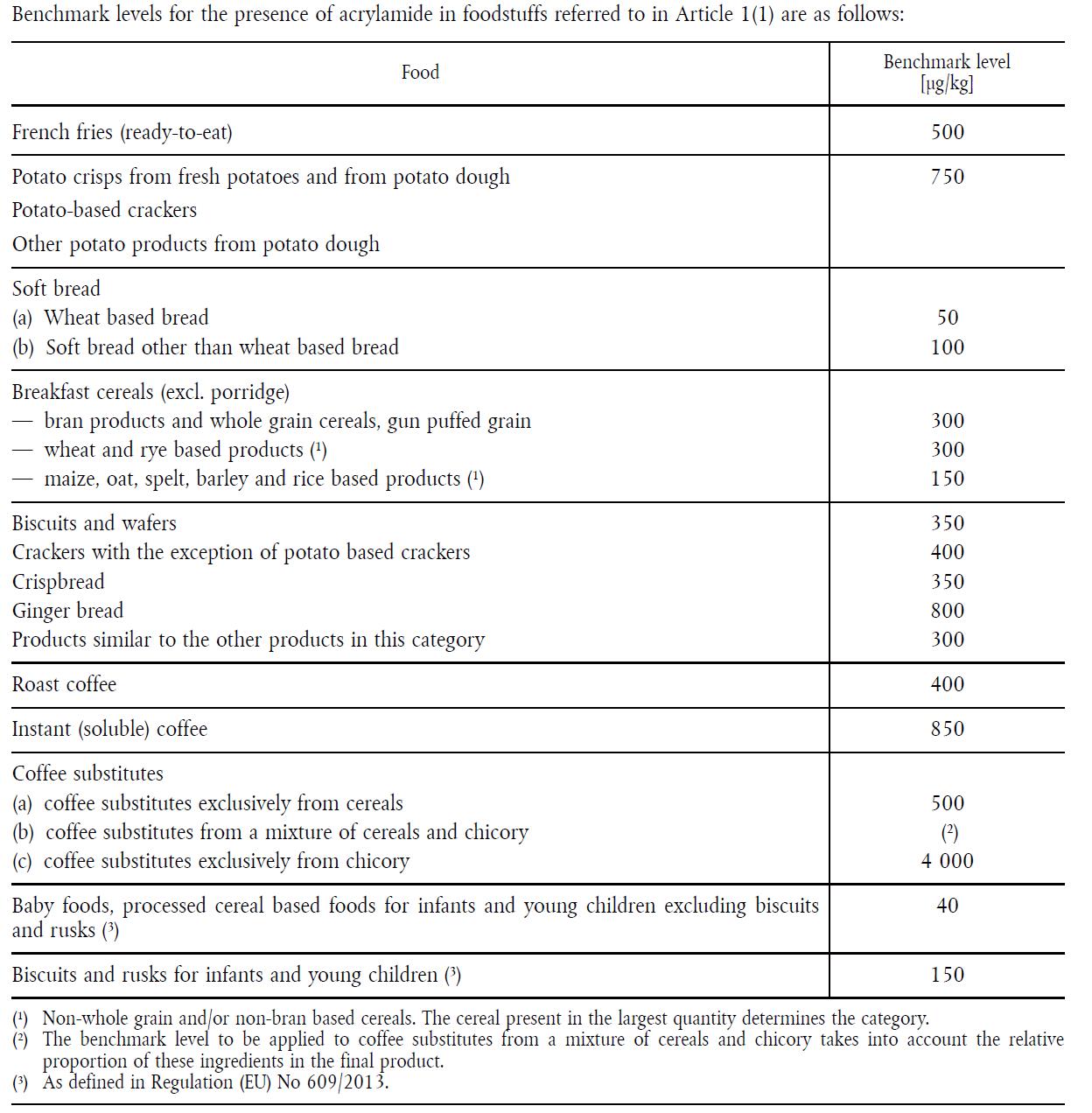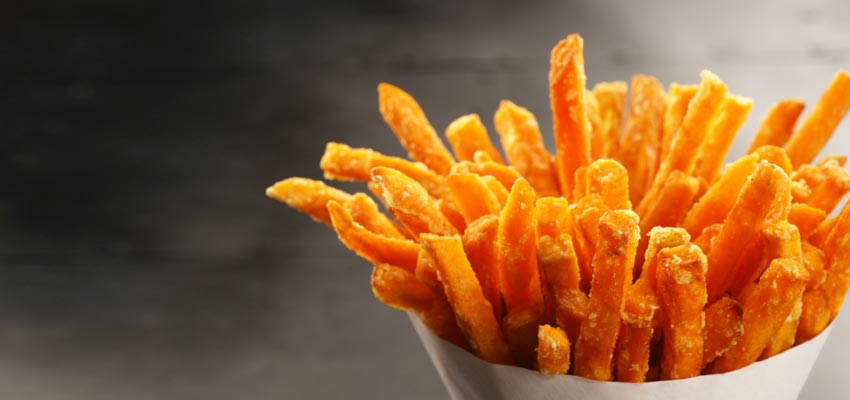COMMISSION REGULATION (EU) 2017/2158 was set in force and will become valid on April 11th, 2018, establishing mitigation measures and benchmark levels for the reduction of the presence of acrylamide in food.
“Good-bye to all deliciously crisp fried chips” was the headline I had in mind, when reading the latest acrylamide mitigation measures launched in the EU regulation on November 20th.
“Given the Authority's conclusions with respect to carcinogenic effects of acrylamide and in the absence of any consistent and mandatory measures to be applied by food businesses in order to lower levels of acrylamide, it is necessary to ensure food safety and to reduce the presence of acrylamide in foodstuffs where raw materials contain its precursors by laying down appropriate mitigation measures.”
This is a pretty good idea and much more reasonable than the recent prolongation of glyphosate use in the EU, but please be aware that the French fries will become a bit less crunchy, when cooked at lower temperatures from now on.
Another citation you should consider:
“The effectiveness of the mitigation measures to reduce the acrylamide content should be verified through sampling and analysis” and later “In addition to sampling and analysis by the business operators, Regulation (EC) No 882/2004 of the European Parliament and of the Council (1) requires the Member States to regularly perform official controls to ensure compliance with feed and food law.”
Then benchmark levels for various food products were defined as follows:

YOUR PLUS: LUFA-ITL is your lab for food analysis
Good to know that AGROLABGROUP lab LUFA-ITL in Kiel was among the first labs in Europe with respect to acrylamide analysis in routine. We established the LC MS/MS method shortly after the acrylamide problem popped up in 2008.
Today the analysis is also performed from our Italian laboratory R&C lab and can be ordered from all other sites as well.
We can offer short turn-around times and attractive conditions, which allow also the shop-keepers of take-away restaurants, who under the regulation are treated also as Food Business Operators, to provide internationally accepted certificates of analysis, when it comes to an official control. (FM)
Author: Dr. Frank Mörsberger
Link:

 Contact
Contact

 Contact
Contact Career
Career